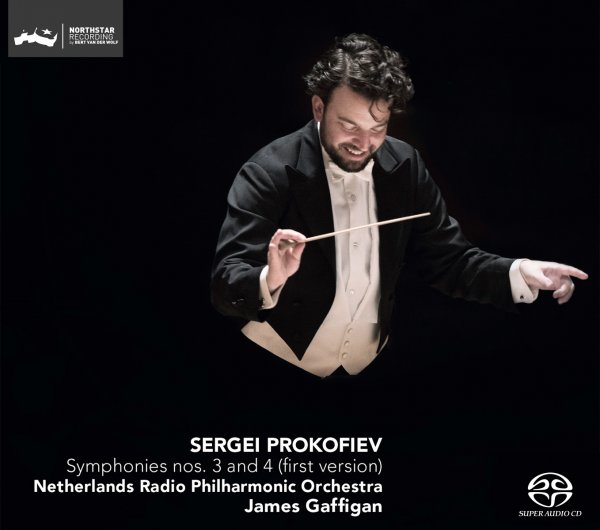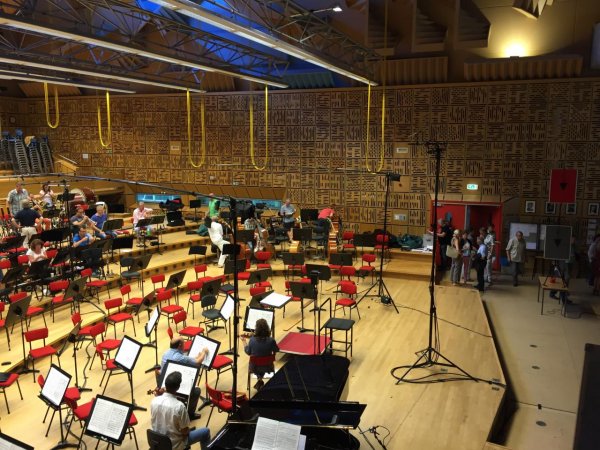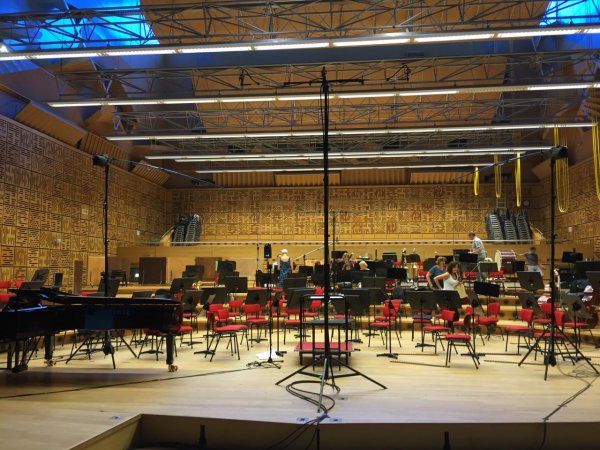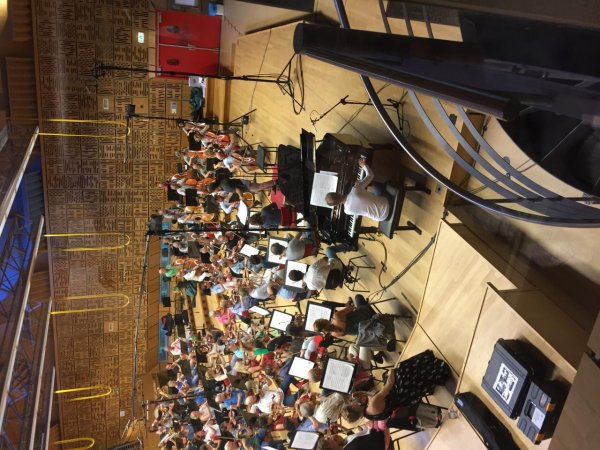Btw, here is copy from www.hraudio.net of the latest Brahms serenade no. 1/ Haydn variations recording of Challenge classics:
"There is no shortage of Brahms in the Hi-Res catalogue. But not all his oeuvre is well represented. Sorely missing are a new DSD recording of his first piano concerto as well as some of his chamber music, like a complete set of the piano quartets to replace the ageing Beaux Arts on Pentatone RQR, maybe also the piano trios and the string quartets. Turning to this new disk: As far as the Serenades are concerned, the harvest is not too brilliant either. There are only 2 versions of No. 1 including this new one. Pentatone RQR gives both 1 and 2 and there is the LSO no. 2 recording with Bernard Haitink, the sound of which is, regrettably, not really heartwarming. A new No. 2 would be welcome. Concerning the Variations on a Theme by Haydn, we are pampered by having several outstanding choices. Reason enough to find out how Jan Willem de Vriend tackles it.
Before entering into the musical argument, I should like to make a remark or two on the presentation of the disk. The booklet seems to be geared to the Dutch market. In Jan Willem de Vriend’s bio, he is said to be (still) the conductor of the ‘Orkest van het Oosten’. This is true, but it won’t ring a bell outside the Netherlands where this orchestra is known by the name of ‘Netherlands Symphony Orchestra’. Similarly, his new appointment with the ‘Residentie Orkest’ may also, but perhaps to a lesser degree, create misunderstanding as this orchestra carries the name of ‘The Hague Philharmonic’.
As an item of possible interest I may add that de Vriend seems to be following Jaap van Zweden’s footsteps. He, too, directed many years ago the Netherlands Symphony, before moving on to The Hague. Could this imply a sign of Mr. de Vriend’s brilliant future? I, for one, think he is worth it. He has done wonders with his ‘old’ orchestra. This being his first recording with the ‘Residentie Orkest’, it is still early days for a definite appraisal, but what he has on offer here is certainly most encouraging.
Let me recall that until 2012 The Hague Philharmonic had an internationally well known, but at the same time an ‘end of career’ conductor (papa Järvi). After drastic cuts in the budget in the same year a new élan had to be built. In 2013 Richard Egarr was enrolled as permanent guest conductor and in the summer of 2015 Jan Willem de Vriend followed as permanent Chef. I understand that from August this year, next to him, a second Chef, Nicholas Collon, a rising talent from the UK, will be contracted to serve the younger generation. With the various aspects of classical and modern repertoire covered, everything seems to be set for giving the orchestra a new lease of life. Why all these details? With the backing of such first rate producers (Challenge Classics) and top recording team (North Star/Bert van der Wolf) we are bound to hear more of them in the future, hopefully bringing the orchestra back to an internationally recognized level it once so proudly had. I remember them playing long ago in the London Barbican in the series ‘world class orchestras’.
This is de Vriend’s first recording with his new orchestra, but it certainly isn’t the first time he stands on the rostrum. Although the sound is not (yet) the same as with the Netherlands Symphony, one can already hear the transition to a more historically aligned (for want of a better expression of being not altogether HIP) musical expression. For instance, compared to Ticciati and his Bamberger Symphoniker, de Vriend is not shy on letting the tympani rattle, making the brass sound so much more musically eloquent, while at the same ably managing the overall balance of the various sections in the orchestra. Sure, Bert de Wolf must have had a hand in this, too.
As far as the ‘game of comparative timings’ is concerned, one notes that de Vriend takes it somewhat slower than Ticciati, allowing for a more Brahmsian flow - which I particularly like - without, however, being sluggish in any way. On the contrary; his rendition is lively and vividly coloured. In one sentence: Expertly played and exquisitely recorded, what else is there to be wished for?
The variations are of a similar nature. Here, too, de Vriend takes more time than his younger colleague Ticciati, but differences are small, be it that the recording is better. In my view de Vriend is a cut above the somewhat beefy account of Janowski, and squarely different from the smooth and well-rehearsed, but nonetheless convincing Fischer. From the available super audio recordings this one can be characterized as the liveliest with lots of impetus. It won’t let you fall asleep during a concert. On the other hand, I would have preferred to have the second serenade instead. But seen as an attractive bonus to a highly spirited Serenade, this newcomer is well worth considering. It gave me over an hour of joyful listening and for me it’s right now the best available choice for both.
Foot note:
I always appreciate it when the members of the orchestra are listed. The question is whether these are the ones who are actually playing, or just a listing of the standard complement. I take it that the members listed are the ones that are playing on disk, but comparing the photo in the booklet with the listing I note that the two oboe players on the photo are female, whereas the listing gives the names of typically two Dutch males! Hence my plea to include a photo of the actual recording session. It helps getting insight in the orchestral set-up and judging the sound distribution. Whatever the case, I hasten to say that it has no bearing whatsoever on the quality of the playing. Some call it nit-picking... and they are right.
Blangy-le-Château,
Normandy, France
Copyright © 2016 Adrian Quanjer and HRAudio.net"
Adrian gave a five star rating (the highest rating) to this new recording for performance as well as for sonics.





